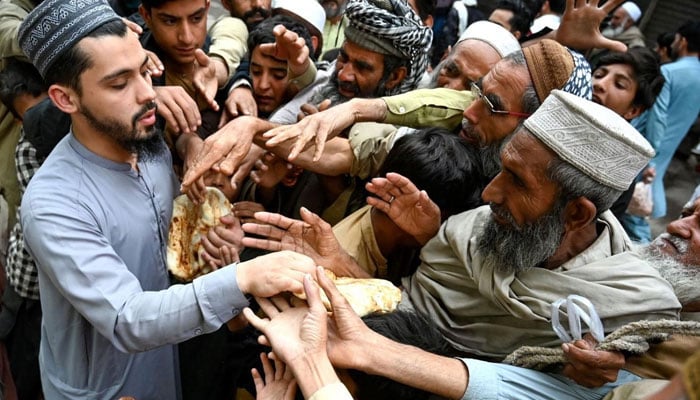By Samar Quddus
Published in Dawn on November 05, 2024
The dream of saying ‘goodbye’ to poverty remains distant in Pakistan with almost 40 per cent of the population living below the official poverty line.
While economic growth is often hailed as an answer to the development of the country, it cannot be considered as a panacea for overall prosperity and poverty alleviation. Without giving due attention to what is happening at the bottom 40 per cent of the population, rise in GDP risks millions getting trapped in cycles of deprivation in the long run and leads to wealth concentration among the top echelons of society.
The focus on growth alone, while ignoring the root causes of persistently high structural poverty, undermines the growth itself. Poverty impedes productivity by weakening the workforce, which includes a large proportion of unskilled labour. Children growing up in poverty often lack access to essential resources like education, healthcare, and nutrition, diminishing their future job prospects and earning potential as adults.
This ultimately impacts economic productivity and growth at both individual and national levels. For example, malnutrition hampers the physical and cognitive development of children; with nearly 40 per cent of children under five in the country suffering from stunting, the capacity of the future workforce faces significant challenges. Poverty thus creates a self-perpetuating cycle of underdevelopment, reinforcing a loop of limited and unequal access to opportunities, low productivity, and stagnant growth.
There’s no denying the fact that growth is essential for Pakistan’s development, and one could partially agree that focusing too much on poverty and equity metrics can divert attention from growth, investment and productivity enhancing strategies that are considered as key drivers of economic progress. However, it is equally important to realise that economic growth doesn’t necessarily equate to poverty reduction and equitable access to opportunities. Without targeted social policies and direct poverty alleviation programmes, economic growth remains uneven.
According to World Bank projections, if economic growth continues at the same rate as it grew in the past two decades globally, and income inequality remains unchanged, world-wide poverty would decline only by 10 per cent by 2030 – from 17 percent in 2010. Therefore, the poverty-reducing power of economic growth can be highly questioned for countries where high inequality persists.
Pakistan has experienced periods of high economic growth, yet poverty reduction has not consistently followed. This persistence means that a large share of the population remains trapped in a cycle of poverty even amid economic growth. The enduring high levels of structural poverty in the country are not simply the result of individual circumstances or short-term economic fluctuations; rather, they reflect deep-rooted issues, such as weak institutions, poor governance, longstanding inequalities, and social exclusion.
These factors collectively hinder the country’s development and perpetuate deprivation among a large segment of the population. Therefore, addressing these challenges requires a balanced approach that fosters growth through inclusive social policies aimed at poverty alleviation, including public investment in education, healthcare, job creation, and innovation initiatives.
While the economic situation of individuals has improved over the years, this progress has been mostly in absolute terms, with relative gains remaining stagnant compared to others. Therefore, it is crucial to measure both poverty and inequality in order to develop policies that address these issues effectively and foster sustainable, inclusive economic growth. However, inconsistencies in poverty data and frequent changes to the official poverty measure have caused confusion and reduced the urgency of tackling poverty at the national level.
Additionally, the sensationalisation of poverty – often referred to as ‘poverty porn’ – should be discouraged, as it tends to overlook the deep-rooted, systemic, and structural causes of persistent poverty.
The writer is a research fellow at the Lahore School of Economics and a consultant at the World Bank.




